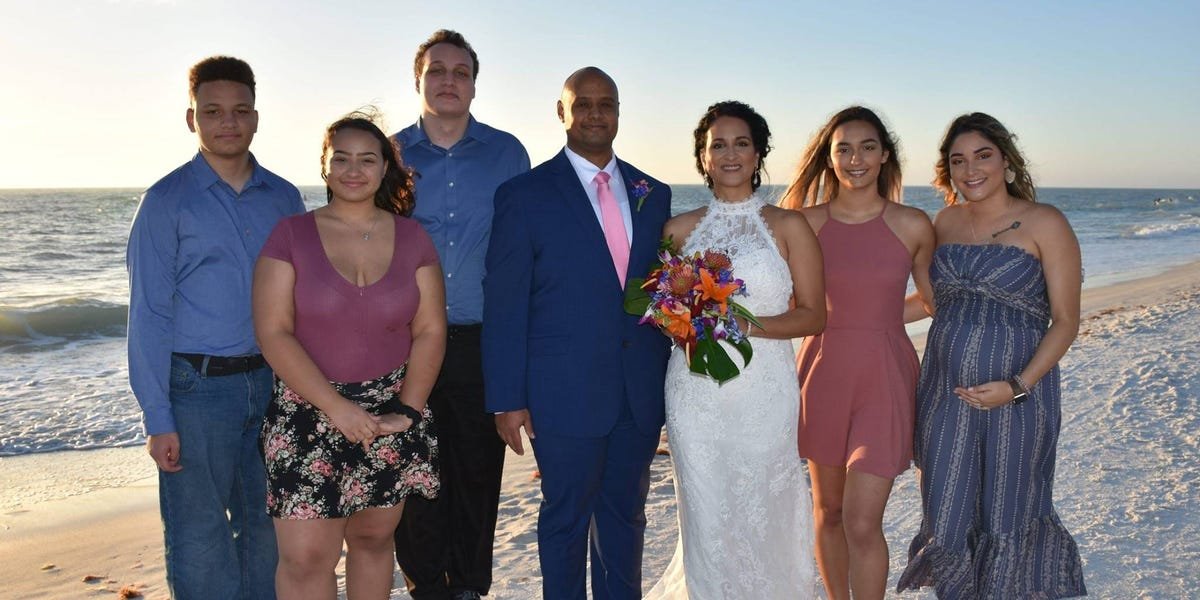I grew up in an immigrant home where talking about money was a mystery and kind of a taboo topic.
My parents didn’t discuss money or talk about their struggles to support me, my two brothers, and my sister. I could see my parents working hard — multiple jobs at times — but I didn’t know how they were doing financially.
I was not taught about finances in any of my schools. The only thing I knew about money was that I would need a way to pay my bills.
I got my first job at 15 years old and spent every dollar I made
My first job was on a cleaning crew, and I made minimum wage, but it was a lot of money. At 16, I got a job at Burger King and started to make what felt like “real” money.
With each job and paycheck, I didn’t give a second thought to my financial future, to the fact that I should be saving a portion of the money, and that uncontrolled spending was not the best idea.
As an 18-year-old, I got a job at Pepsi, making $60,000 a year, and still had no plan for my money. I did what many American young people do: I got several credit cards, accumulated a lot of debt (over $180,000 at one point), and declared bankruptcy in my 20s when I couldn’t pay my bills.
What made it even harder was that my first son was born when I was 19, followed by my second son and daughter a few years later.
I started a business in my 20s, and it grew quickly. Despite years when I brought home over $150,000, I continued my poor spending and lack of savings.
It wasn’t until I reached 30 that I got serious about money.
I remember sitting in my living room looking at a pile of bills, frustrated that I didn’t have enough money to pay them, and understanding that my lack of financial literacy would keep me there.
I started to think about how I could earn more money, save for retirement, and what I’d leave my children
I knew I needed to break the pattern and teach my children financial literacy lessons.
I focused on earning more money through my online business and changed my habits. Each morning, I would start by reading a book, listening to a podcast, or watching a YouTube video about money and financial literacy.
I created a budget and kept to it. I started putting aside 20% of each paycheck for savings, and I paid down debt. As I paid down debt, I began investing in the stock market.
I shared the lessons with my children
My saving and investing went into overdrive in my 40s. I’ve saved and invested significant money and feel good about my future retirement.
I became a stepdad when I married my wife Cindy and inherited three bonus children.
My wife and I agree on the importance of saving, investing, and becoming financially free. We’re also committed to teaching those lessons to our children.
I’ve taught my kids that they don’t have to follow my hard path to become smart about money. I’ve taught them that saving a portion of their paycheck is wise. I’ve also taught them the importance of having a three — to six-month emergency fund in case of unexpected circumstances.
I’ve shown my kids that the stock market has historically returned 10% over the last 100 years. Even with a little bit invested each month, that money can grow into a million dollars by the time they reach my age.
The most important lesson I’ve taught my children is that life is about more than working
But I’ve also taught them that life should be lived and that money is the instrument that allows them to live life fully.
I’ve taught my children the importance of financial freedom. A work “optional” life means they can spend their time doing whatever they want without needing a job or business to be their everything.
With enough money saved and invested in the stock market, they could live off a 4% withdrawal and not touch the principal investment.
I’ve taught them they can achieve financial freedom without needing to time the market or choose individual companies to invest in — they can invest in low-cost index funds, EFTs, and mutual funds.
Financial literacy is critical for parents to teach their children. Finances are not generally taught in schools, so children grow into adults with bad money habits.
Learning good money habits helps children grow up and become financially savvy adults. I continue to teach my children this every day.




